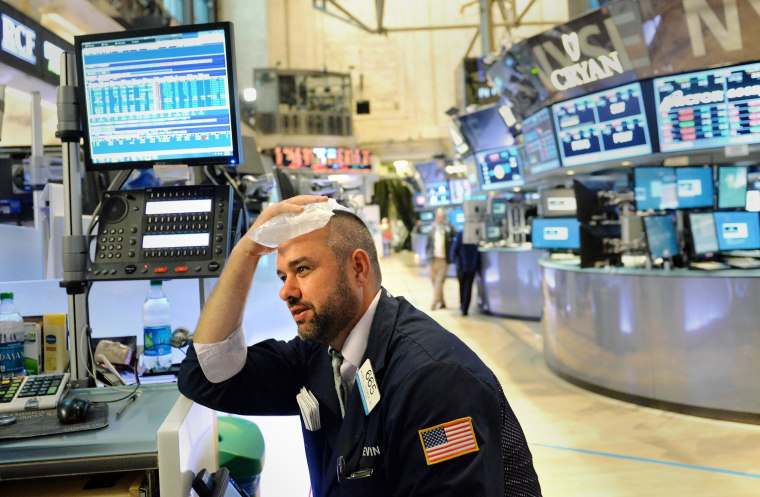NEW YORK -- China's 2 percent devaluation of the yuan on Tuesday pushed the U.S. dollar higher and hit Wall Street and other global equity markets as it raised fears of a new round of currency wars and fed worries about slowing Chinese economic growth.
U.S. stock indices dropped more than 1 percent and stocks also fell in Asia and Europe as investors contemplated the implications of a move designed to support China's slowing economy and exports. The MSCI All World Index of global shares fell 1.16 percent.
"What is good for growth in China is unfortunately bad for everybody else," said Bill McQuaker, co-head of multi-asset at Henderson Global Investors.
The Dow Jones industrial average fell or 1.4 percent to 17,368.54. The S&P 500 lost 1.17 percent and, to 2,079.64 and the Nasdaq Composite dropped or 1.31 percent to 5,035.01.
CNBC: China's 'Big Bang' Dents Global Markets
Companies that sell to China were hit hard, with heavy equipment maker Caterpillar losing 3.13 percent and Germany's Volkswagen dropping 4 percent. Energy and materials shares also tumbled on China demand concerns, with Exxon Mobil dropping 1.76 percent.
The pan-European FTSEurofirst 300 index lost 1.68 percent, led lower by car makers and luxury goods companies, whose products are now more expensive for Chinese consumers.
Against the trend, Greek shares gained 2.14 percent after Athens secured a third bailout deal with creditors.
On Chinese stock markets, airlines and importers fell, though exporters rose. The CSI300 index of the largest listed companies in Shanghai and Shenzhen lost 0.4 percent and the Shanghai Composite closed flat.
China's move, which the central bank described as a "one-off depreciation" based on a new way of managing the exchange rate that better reflected market forces, triggered the yuan's biggest fall since 1994, pushing it to its weakest against the U.S. dollar in almost three years.
In a potentially worrisome sign, China's offshore yuan , a more liquid instrument traded out of Hong Kong, fell 2.9 percent, exceeding the fall in the onshore yuan. It suggests more possible losses for the onshore currency, as the Hong Kong-traded yuan tends to act as a precursor to the onshore.
